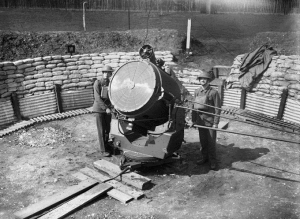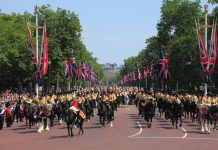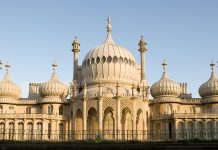
Today marks the anniversary of the start of the Battle of Britain – one the Second World War’s most significant turning points.

Blitz spirit – a calm, dignified response in the face of extreme adversity – has defined the collective British character ever since the summer and autumn of 1940.
The people, urged on by Prime Minister Winston Churchill, battled on in the face of a sustained aerial bombardment as German and British air forces clashed in the skies over the country in what would become a major turning point in the Second World War and the first all-air battle in history.
Britain’s decisive victory in gaining air superiority over the Luftwaffe saved the country from a ground invasion – Hilter’s planned Operation Sealion – by German forces which had swept across most of Western Europe in just two months.
The air crews’ success and sacrifice – more than 500 men were killed – prompted Churchill to utter one of his most famous sayings: “Never in the field of human conflict has so much been owed by so many to so few.”
Here, we take a closer look at how the RAF – along with the British people’s refusal to be cowed – helped turn the tide of the war.
10 July – 12 August: The Luftwaffe attack ships in the English Channel, ports and coastal radar stations.
16 July: Adolf Hitler calls for Operation Sealion – the ground invasion of Britain saying – to be prepared.

13 August: ‘Eagle Day’: The Luftwaffe launches raids on airfields in the south east of England.
18 August: Fierce air battles between the Luftwaffe and the RAF, with severe loss of RAF aircraft on the ground. The date is now remembered as ‘The Hardest Day’.
20 August: Prime Minister Winston Churchill acknowledges the enormous efforts of British and Allied aircrews: “Never in the field of human conflict has so much been owed by so many to so few.”
24 August: During night bombing of Britain, a lost German bomber formation drops bombs on London by mistake.
25 August: The RAF launches their first bombing raid on Berlin.
31 August: Fighter Command suffers its heaviest losses to date.
15 September: Battle of Britain day. The Luftwaffe launches its heaviest bombing raids on London. Fighter Command successfully fights the attacking aircraft, resulting in heavy Luftwaffe losses.
17 September: Hitler postpones the invasion of Britain.
26 September: The Spitfire factory at Southampton is attacked and destroyed.
October: The Luftwaffe focuses their raids on cities under the cover of darkness. Coastal towns, airfields and other military targets are attacked during the day.
31 October: The Luftwaffe is denied air superiority by the RAF. The Battle of Britain ends.






 © 2024
© 2024